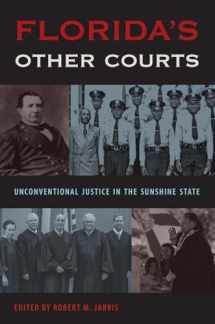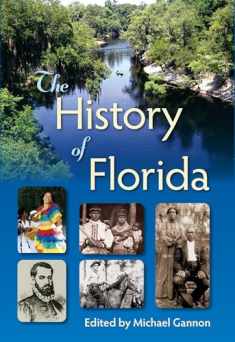
Florida's Other Courts: Unconventional Justice in the Sunshine State (Florida Government and Politics)
Book details
Summary
Description
Pushing past the conventional understanding of federal and state courts and the judicial system, this volume examines eight little-known Florida courts. Part 1 details general jurisdiction courts from 1513 to 1865 while part 2 profiles modern-era special jurisdiction courts.
Beginning with the state's colonial history, Florida's Other Courts challenges narratives that paint Spain's administration of its New World holdings as corrupt, inefficient, and tyrannical, using research into archival records scattered across Spain, Cuba, and other New World sites. Contributors to the volume also demonstrate how British authorities later molded the courts after their own justice system, introducing grand juries, jury trials, and the positions of chief justice and attorney general. Examining the changes instituted under General Andrew Jackson while Florida was a U.S. territory reveals a shift toward American sensibilities, though progress was slowed by clashes with Congress over funding and questions regarding the limits of self-rule. Under the Confederate Constitution, after the state seceded, the courts were in disarray and military commanders would even ignore court orders.
Today, Florida is still home to alternative forms of tribunals. Military courts have played an important role in the state's criminal justice system, but significant differences--from terminology to the role of the jury--exist between these courts and their civilian counterparts. Religious courts are also plentiful in the state, including Baptist, Jewish, Presbyterian, and Roman Catholic courts, which provide adherents with a forum for resolving business and marital disputes.
In a state that is so culturally diverse, mainstream courts often fail specific subgroups, especially racial minorities, leaving them no choice but to create their own dispute resolution processes. From 1950 to 1963, Miami was home to the Negro Municipal Court, which remains America's only all-black court. The Miccosukee and Seminole Indian tribes also have established their own judicial systems. While the Miccosukee court relies heavily on customary law and is closed to outsiders, the Seminole court has been designed to resemble the state courts, with trial and appellate judges, a court clerk, and a bar association.
Featuring extensive notes and an index of court cases, this volume offers a new and compelling look at the development of justice in Florida.
A volume in the series Florida Government and Politics, edited by David R. Colburn and Susan A. MacManus
Contributors: James M. Denham | David J.R. Frakt | Robert M. Jarvis | Tonya Kowalski | Robert W. Lee | Donna Litman | Ernesto A. Longa | M.C. Mirow | Christopher A. Vallandingham


We would LOVE it if you could help us and other readers by reviewing the book
Book review




